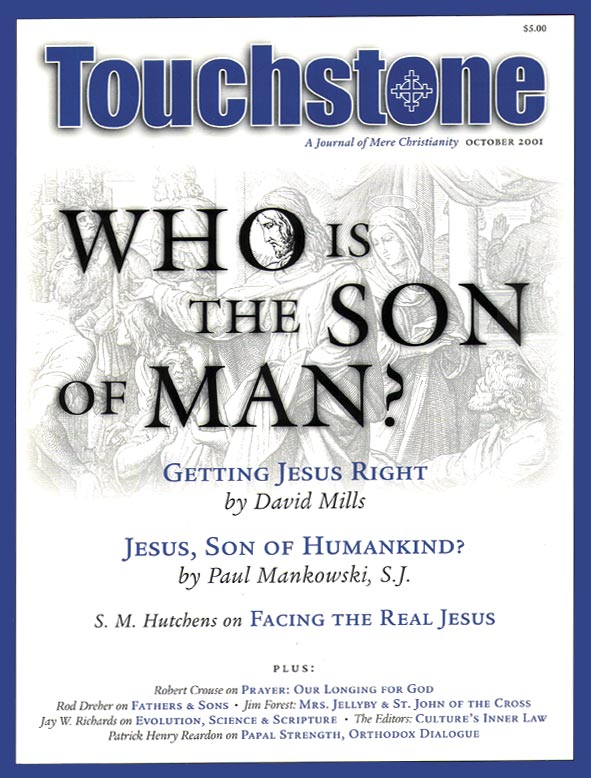Mrs. Jellyby & St. John of the Cross
Jim Forest on Activism & Prayer
Among the cautionary characters the reader encounters in Charles Dickens’s novel of the 1840s, Bleak House, is Mrs. Jellyby, who resolutely devotes every waking hour to the “Borrioboola-Gha venture.” The reader never discovers the details of the endeavor except that it involves the settlement of impoverished Britons among African natives with the goal of supporting themselves through coffee growing.
Mrs. Jellyby is convinced that no other undertaking in life is so worthwhile, or would solve so many problems at a stroke. Dickens’s interest is not in the project, however, but rather in Mrs. Jellyby, who is so wedded to her work that she has no time for her several children, with the exception of Caddy, a daughter she has conscripted as her secretary. Ink-spattered Caddy puts in nearly as many hours as her mother in the daily task of answering letters and sending out literature about Borrioboola-Gha.
Caddy, however, has come to hate the very word “Africa” or any word that has the remotest suggestion of causes. For her, causes simply mean the ruin of family life. Mrs. Jellyby’s husband eventually becomes suicidal and, though surviving despair, is last seen in the book with his head resting despondently on a wall.
In the book’s postscript, we discover that the Borrioboola-Gha project failed after the local king sold the project’s volunteers into slavery in order to buy rum. Mrs. Jellyby quickly found another cause to occupy her time, “a mission with more correspondence than the old one,” thus providing a happy ending for a permanent campaigner.
The Mrs. Jellybys
While few in the social movements so radically neglect those in their care, unfortunately I cannot think of Mrs. Jellyby merely as a caricature. When my wife and I talked about her, we could think of several people, of both sexes, resembling her in many details: people with a legitimate concern but engaging themselves so fully that their fixation has wreaked havoc in the lives of those around them, and probably done a great deal to drive many people they intended to influence in the opposite direction.
While in theory dedicated to compassion, the Mrs. Jellybys I’ve often known seem to be driven by anger with those around them, whom they can punish with a clear conscience by taking up a virtuous cause.
I recall one activist who wasn’t able to attend his daughter’s marriage because of a demonstration that day. Another man, more Gandhian than Gandhi, when left in charge of the office of the Committee for Nonviolent Action while the rest of the staff was away being arrested and jailed, nearly starved the office cat to death because his conscience opposed the domestication of animals. Whatever food the cat found during those austere weeks, it was not from his ideology-guided hand.
It is a dilemma that the Trappist monk, Thomas Merton, discussed in the 1960s in one of his letters (included in The Hidden Ground of Love) he sent me. “One of the problematic questions about nonviolence is the inevitable involvement of hidden aggressions and provocations,” he said, especially in those who are not “spiritually developed.” There is
[t]he danger one observes subtly in tight groups like families and monastic communities, where the martyr for the right sometimes thrives on making his persecutors terribly and visibly wrong. He can drive them in desperation to be wrong, to seek refuge in the wrong, to seek refuge in violence. . . . In our acceptance of vulnerability, we play [on the guilt of the opponent]. There is no finer torment. This is one of the enormous problems of our time . . . all this guilt and nothing to do about it except finally to explode and blow it all out in hatreds, race hatreds, political hatreds, war hatreds. We, the righteous, are dangerous people in such a situation. . . . We have got to be aware of the awful sharpness of truth when it is used as a weapon, and since it can be the deadliest weapon, we must take care that we don’t kill more than falsehood with it.
subscription options
Order
Print/Online Subscription

Get six issues (one year) of Touchstone PLUS full online access including pdf downloads for only $39.95. That's only $3.34 per month!
Order
Online Only
Subscription

Get a one-year full-access subscription to the Touchstone online archives for only $19.95. That's only $1.66 per month!
bulk subscriptions
Order Touchstone subscriptions in bulk and save $10 per sub! Each subscription includes 6 issues of Touchstone plus full online access to touchstonemag.com—including archives, videos, and pdf downloads of recent issues for only $29.95 each! Great for churches or study groups.
Transactions will be processed on a secure server.
more from the online archives

15.6—July/August 2002
Things Hidden Since the Beginning of the World
The Shape of Divine Providence & Human History by James Hitchcock
calling all readers
Please Donate
"There are magazines worth reading but few worth saving . . . Touchstone is just such a magazine."
—Alice von Hildebrand
"Here we do not concede one square millimeter of territory to falsehood, folly, contemporary sentimentality, or fashion. We speak the truth, and let God be our judge. . . . Touchstone is the one committedly Christian conservative journal."
—Anthony Esolen, Touchstone senior editor








